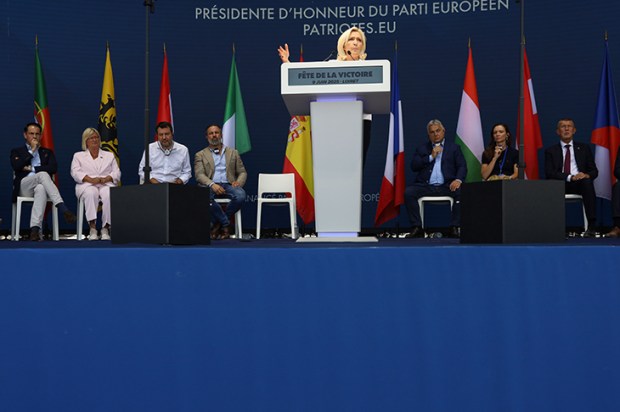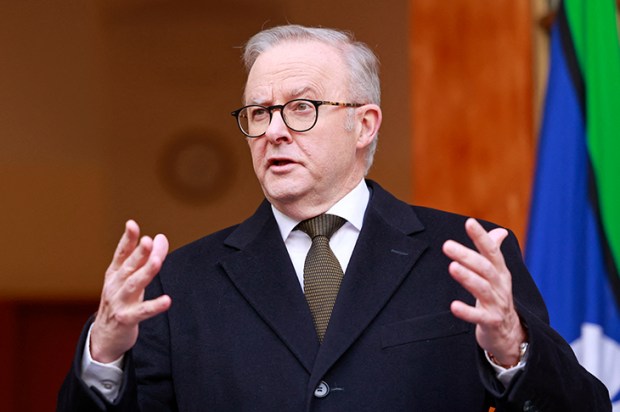I love Rowan, our editor in chief. No, not in that way. But his willingness to bring an open mind to his task, to publish copy he doesn’t necessarily agree with – that makes him a great editor and makes the magazine an outlet for genuine debate of ideas.
A while ago, I wrote a piece on Donald Trump’s economic policy ideas. In the main, I was very critical. Trump misunderstands the role that trade can play in improving the lot of consumers and raising living standards. He sees trade as a win-lose scenario rather than the win-win outcomes that are more typical.
Don’t get me wrong here: I’m not so naive as to overlook the distortions, dirty tricks and outright cheating that goes on when countries trade with each other. China should never have been allowed into the World Trade Organisation – thanks, Bill Clinton.
The decision by Trump, and then carried on by Biden, to impose super-tariffs on Chinese products was in part a response to the corruption of the world trading system, including the excessive industry subsidies handed out by the Chinese government. The fact that the US is such a huge market also means that tariffs harm that country much less than other smaller ones.
I agree with David Pearl who wrote in this magazine about the large potential benefits of deregulating the energy industry in the US – one of Trump’s core policies (‘Drill, baby, drill!’). The impact could swamp any negatives of other misguided policies. We should also not forget the labour market gains made by minority groups during Trump’s term in office.
Certainly, Trump is no fiscal conservative; he doesn’t seem much bothered by the size of the federal budget deficit or the associated build-up of government debt. In 2017 when the economy was going along well, the US budget deficit came in at $US666 billion; it was close to one trillion US dollars the next year.
I’m not sure we can really blame Trump for the colossal increase in government spending during the pandemic: my guess is that a Democrat administration would have spent even more.
But here’s the thing: after Biden was elected, with Kamala as his running mate, the expected post-pandemic fiscal consolidation never occurred. In 2022, the budget deficit came to $US1.38 trillion; in 2023, it was $US1.77 trillion or 6.3 per cent of GDP. Take it from me, this is huge. (It violates all the fiscal rules of the European Union, for instance.)
And here’s another important thing to consider – both the credit and blame for what occurred with the economy and the policies implemented between 2020 and 2024 can be attributed to the Biden-Harris administration. In particular, the ongoing high inflation rate and the associated hikes in interest rates were, at least in part, the result of Biden/Harris actions.
Let’s also not forget the number of times that Vice President Harris cast the deciding vote in the Senate to allow bills to pass. In particular, the extremely unwise and lavish Inflation Reduction Act – pause for laughter here, it did the reverse – only became law because of Kamala. In turn, this has led to an avalanche of rent-seeking that has directed government monies to many dubious green investments.
The Biden-Harris push to get more electric vehicles on the road has also seriously faltered, with Ford in particular bleeding money. It has been estimated that Ford is losing $US40,000 on every EV it produces.
The regulations force the car companies to manufacture EVs but consumers aren’t showing much enthusiasm for buying them. In the meantime, the price of petrol/diesel cars has risen to provide cross-subsidies for EVs. Trump is showing common sense in proposing to ditch these directives.
When it comes to Kamala, the Democrat presidential nominee, a strange sleight of hand is underway to effectively erase the Biden era and to draw comparisons only with the previous Trump administration. Apart from the inherent dishonesty of this approach, it surely treats American electors as complete suckers.
And while she is trying to expunge her deeply left-leaning and progressive instincts – on one assessment, she was declared the most left-wing senator in the upper house – her policy proposals tell a different story. They are highly reminiscent of the thinking of Bernie Sanders.
Her main game has nothing to do with wealth creation, but everything to do with wealth redistribution. The wealthy must be punished; they must stump up the money to be dispersed to those less well-off and to fund a slew of social programs (which, by and large, won’t work).
Some of Kamala’s policy proposals – it is unclear which ones she will keep and which ones she will drop – include raising the rate of company tax from 22 per cent to 28 per cent, undoing the good work of Trump in lowering the company tax rate. She also plans to tax capital gains as regular income for all individuals earning more than $US1 million and to raise the top marginal rate of income tax from 37 to 44 per cent. This is punitive stuff.
Her dreams also include a proposal to tax unrealised capital gains which would be a major disincentive to make long-term investments, and to limit what we call negative gearing. Rent controls are not out of the question.
While seemingly unable to distinguish between gauging and gouging, she hilariously thinks the federal government can somehow control grocery prices from Washington. This is surely just a thought bubble – Kamala’s version of B1’s (Chris Bowen’s) Grocery Watch, perhaps – but it is very telling that she would even mention it. She has also borrowed Trump’s idea of exempting tips from income tax – it’s hard to see how this is a good idea but for Harris, it’s not original.
The bottom line is this: we might not be singing the praises of Trump, the economic policymaker, but at this stage he looks like a complete genius compared with Kamala. Don’t forget here that she has zero experience in this area. Her very limited professional career has focused on legal prosecutorial work, followed by a very undistinguished tenure as senator and VP.
She was given the task of controlling the millions of illegal migrants crossing the southern border. Apart from her reluctance even to travel to the area, it’s not clear that she achieved anything at all. To the extent that there has been any progress recently, it’s mainly because some of the leaders of the affected states have taken matters into their own hands. It will take a tough guy like Trump to deal with this pressing issue.
Of course, in this post-factual world where the vibe means more than the facts, there is a distinct possibility that Kamala will become the next president of the United States. All I can say is that the US and the world should be very afraid if her weird (gettit?) ideas are ever put into practice.
Got something to add? Join the discussion and comment below.
You might disagree with half of it, but you’ll enjoy reading all of it. Try your first month for free, then just $2 a week for the remainder of your first year.












